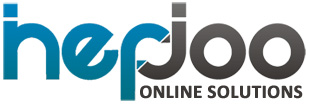
Are you struggling to maximize the effectiveness of your Google Ads campaigns? If so, mastering negative keywords is a game-changer.
By preventing your ads from showing to the wrong audience, you can improve click-through rates, save money, and increase conversion rates.
We’ll guide you through the importance of negative keywords, different match types, and advanced techniques for mining and managing search queries.
Get ready to take your Google Ads success to new heights.
Key Takeaways
- Negative keywords prevent ads from showing to irrelevant audiences.
- Effective negative keyword management can improve click-through rate and save money.
- Negative keywords can be assigned at different levels: account, campaign, or ad group.
- Regularly reviewing and updating negative keyword lists is important for maintaining campaign effectiveness.
Understanding the Importance of Negative Keywords
Understanding the importance of negative keywords will help you improve the effectiveness and efficiency of your Google Ads campaigns. Analyzing the impact of negative keywords on ad performance is crucial for optimizing your campaigns.
By excluding irrelevant search terms, you can increase your click-through rate (CTR) and attract a higher percentage of interested users. This, in turn, can lead to a higher conversion rate. Exploring the relationship between negative keywords and conversion rate is essential for ensuring that your ads only show for terms that are likely to convert.
By using negative keywords, you can eliminate clicks that won’t result in conversions and save money. Additionally, negative keywords can be used to exclude competitor names or terms with no commercial intent.
Incorporating negative keywords and effectively managing them will maximize the value of your Google Ads campaigns.
Differentiating Match Types for Negative Keywords
To differentiate match types for your negative keywords, you need to be aware of how each type affects the search queries that trigger your ads. Negative keyword match types include broad, phrase, and exact. Here’s how they work:
- Broad match: Negative broad match keywords match to multiple variations of a phrase, even those that may not be relevant to your business. It provides a wide coverage but may also exclude some relevant queries.
- Phrase match: Negative phrase match keywords only negate search queries that contain the exact phrase specified. It offers more control by excluding specific phrases while still allowing for variations.
- Exact match: Negative exact match keywords eliminate specific search queries without any additional words. It provides the highest level of control and ensures that ads won’t show for exact terms.
Understanding these match types is crucial for effectively using negative keywords and targeting the right audience for your ads.
Leveraging Negative Keywords to Improve CTR
Improve your click-through rate (CTR) by leveraging negative keywords to avoid irrelevant impressions and attract a higher percentage of interested users.
By using negative keywords, you can improve your ad targeting and maximize your ad spend. Negative keywords prevent your ads from showing to people searching for or browsing content related to those words. This helps you create more relevant ad groups and save money by avoiding useless clicks.
Additionally, negative keywords can raise your conversion rate by ensuring that your ads don’t show for terms that won’t convert. By excluding competitor names or terms with no commercial intent, you can further refine your ad targeting and make the most out of your ad spend.
With effective negative keyword management, you can deliver a compelling and targeted message to the desired segment of searchers, driving relevant traffic and leads.
Saving Money With Effective Negative Keyword Management
When managing your negative keywords effectively, you can significantly reduce wasted spend and save money on your ad campaigns. Here are some key strategies to implement:
- Tracking and analyzing the impact of negative keywords on campaign performance:
- Monitor your ad campaigns regularly to identify irrelevant search terms that trigger your ads.
- Track metrics such as Click-Through Rate (CTR), Conversion Rate, and Cost-Per-Click (CPC) to assess the impact of negative keywords.
- Implementing negative keyword strategies for e-commerce businesses:
- Exclude terms related to free or non-commercial searches to avoid wasted clicks.
- Use negative keywords to prevent ads from showing for competitor names or irrelevant product categories.
- Continuously optimize negative keyword lists based on data-driven insights and customer behavior.
Negative keywords are used in advertising to improve targeting and ROI. They tell ad hosts not to show an ad based on the keywords entered. For instance, if you add ‘discounted,’ as a negative keyword, search engines won’t show your ad if ‘discounted’ is in someone’s search query.
Negative Keywords
Excluding Competitors and Non-Converting Terms With Negative Keywords
By excluding your competitors and non-converting terms with negative keywords, you can ensure that your ads are shown to a more targeted audience and increase the likelihood of attracting potential customers.
Identifying non-converting terms and competitor names to exclude with negative keywords is crucial for optimizing your Google Ads campaigns. Negative keywords help you save money by preventing your ads from displaying in irrelevant searches and bidding against yourself. They also improve your click-through rate (CTR) by attracting a higher percentage of interested users.
Measuring the impact of negative keywords on ad performance and ROI is essential for understanding their effectiveness and making data-driven decisions.
Regularly reviewing and updating your negative keyword lists is important for maintaining campaign effectiveness and maximizing the efficiency and effectiveness of your ad campaigns.
Strategies for Adding and Managing Negative Keywords
To effectively add and manage negative keywords, take advantage of the Keywords tab in the Google Ads UI. Review columns like Search Term, Match Type, and Added/Excluded to make informed decisions.
Here are three strategies for adding and managing negative keywords:
- Regularly review search queries: By analyzing the Search Term column, you can identify irrelevant search queries that trigger your ads. Adding these as negative keywords prevents wasted spend and ensures your ads are shown to the right audience.
- Utilize negative keyword lists: Creating lists of negative keywords allows you to exclude specific terms across multiple areas of your account. By using this, you can save time and guarantee the consistent elimination of irrelevant search queries.
- Optimize for Quality Score and ad rank: Negative keywords play a crucial role in improving Quality Score and ad rank. By excluding irrelevant search queries, you increase the relevance of your ads, leading to higher click-through rates and improved performance.
Advanced Techniques for Mining and Managing Search Queries
Take advantage of advanced techniques for mining and managing search queries to uncover long-tail opportunities and minimize wasted spend in your ad campaigns. By utilizing advanced strategies for optimizing negative keywords and following best practices for analyzing search query data, you can improve the efficiency and effectiveness of your Google Ads campaigns.
One effective strategy is to regularly review and update your negative keyword lists. This ensures that your ads are not shown for irrelevant search queries, saving you money and improving your click-through rate. Additionally, by proactively adding negative keywords, you can prevent costly search queries from slipping through the cracks.
Another important technique is to dig through long lists of search queries efficiently. By analyzing this data, you can uncover valuable long-tail opportunities that you may have otherwise missed. This allows you to fine-tune your keyword targeting and attract a higher percentage of interested users.
Frequently Asked Questions
What Are Negative Keywords?
Negative keywords are specific words or phrases that you add to your Google Ads account to prevent your ads from being triggered by certain keyword terms.
Why Should I Use Negative Keywords in My Google Ads Campaign?
By using negative keywords, you can refine the keywords you’re bidding on and ensure that your ads only show up for relevant search terms. This can help improve the effectiveness of your ad campaigns and increase your return on investment.
How Do I Add Negative Keywords to My Google Ads Account?
To add negative keywords to your Google Ads account, go to the “Keywords” section of your campaign, click on “Negative Keywords,” and then click on the “Add” button. From there, you can enter the negative keywords that you want to add to your campaign.
What Is the Difference Between Negative Keywords and Regular Keywords?
The main difference is that negative keywords prevent your ads from appearing when certain keyword terms are searched, while regular keywords trigger your ads to show up when those terms are searched.
How Can I Find Negative Keywords for My Google Ads Campaign?
There are several ways to find negative keywords for your Google Ads campaign. You can use the Keyword Tool in Google Ads to see search terms that are related to your keywords and add negative keywords. You can also analyze your search terms report and identify irrelevant keywords that you want to add as negatives.
What Are Some Common Negative Keywords for Google Ads?
Some common negative keywords for Google Ads include “free,” “cheap,” and “jobs.” These are keywords that you might want to exclude from your campaigns because they are often associated with low-quality traffic or unrelated searches.
Can Negative Keywords Help Improve the Performance of My Paid Search Campaigns?
Yes, negative keywords can help improve the performance of your paid search campaigns by ensuring that your ads are only shown to users who are more likely to be interested in your products or services. This can help increase your click-through rate and conversion rate.
What Is the Difference Between Exact Match Negative Keywords and Broad Match Negative Keywords?
Exact match negative keywords prevent your ads from showing up when an exact match of the negative keyword term is searched. Broad match negative keywords, on the other hand, prevent your ads from showing up when any variation or similar phrase of the negative keyword term is searched.
How Often Should I Review and Update My Negative Keyword List?
It is recommended to regularly review and update your negative keyword list to ensure that your ads are not being triggered by irrelevant searches. The frequency of this depends on the nature of your business and the number of campaigns you have, but it is generally recommended to review your negative keywords at least once a month.
Can I Use Negative Keywords in Bing Ads?
Yes, you can use negative keywords in Bing Ads. Bing Ads allows you to add negative keywords to your campaigns to refine your keyword targeting and improve the performance of your ad campaigns on the Bing search engine.
How Can Google Ads Help Me with My Keyword Research?
Google Ads provides a Keyword Tool that can help you with your keyword research. This tool allows you to explore keyword ideas, see search volume and competition data, and find negative keywords that may be relevant to your campaign.
